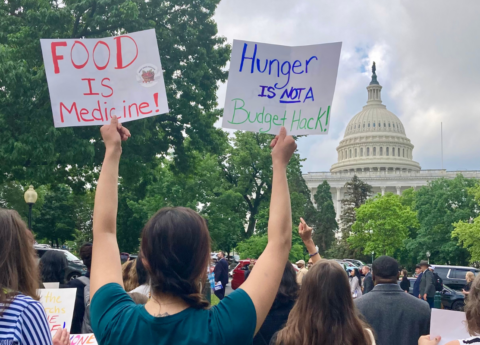Governor Matt Bevin is expected to announce potential changes to Kentucky’s Medicaid expansion soon, recently telling WLKY that “an amazing amount of work” has gone into a proposal.
Because the governor has developed these changes behind closed doors we don’t yet know the details of the proposal, but he has often mentioned a desire to cut Medicaid costs just as his budget made cuts to education. He often cites Indiana’s Medicaid expansion as a model for changes in Kentucky.
Much is at stake and at risk for our health, economy and quality of life depending on what happens to the program moving forward.
Kentucky’s approach to Medicaid expansion has made it a leader in expanded access to care. We are tied with Arkansas for the biggest coverage gains in the country, as the share of our population without insurance fell from 20.4 percent in 2013 to 7.5 percent in 2015, according to Gallup.
Expanded coverage is the essential ingredient in improving the health of Kentuckians. In the year after expansion took effect, we doubled the number of cholesterol, cancer and other screenings provided through Medicaid. Such tests are critical to identifying and managing conditions early, when they are often easier and less expensive to treat.
Because of expansion, many more Kentuckians can now get care for issues ranging from untreated dental conditions to mental health and substance abuse. Over time, this will lead to a better workforce, a higher quality of life and stronger communities.
That bolsters our economy, as does the injection of federal funds that’s coming with expanded coverage. Medicaid expansion has brought over $3 billion extra to providers so far, and we’ve added 13,400 jobs in the health care and social assistance sector since expansion began. That means more tax revenue for the state, and savings in the state budget from money previously spent on the uninsured. While Kentucky must eventually put in 10 percent of the costs of expansion, that’s a great deal for the commonwealth given the many health and economic benefits we are reaping.
Despite all these gains, Gov. Bevin may propose changes that roll back progress by introducing barriers to coverage and care.
A key component of Indiana’s approach concerns the charging of premiums. Most of those getting coverage because of Medicaid expansion are the working poor — people with low-wage jobs in restaurants, construction, retail stores and more who can’t afford or aren’t offered insurance through their employers. Ample past research shows people barely scraping by must often forego coverage if faced with cost barriers. Also concerning in Indiana’s approach are provisions that lock out people from coverage for six months if they miss premium payments, deny dental and vision coverage for those who don’t pay and eliminate transportation help to the doctor.
It could cost Kentucky more to administer premium payments and the added co-pays that are in the Indiana program than the state would actually collect. That’s because Kentucky would have to set up a complex new system and hire workers to track people’s incomes and payments. Besides the burden of new administrative expenses, reducing the number of people covered can increase costs over time in more expensive emergency room care, because untreated health conditions become worse and as our overall health status declines.
Indiana put in these provisions at the launch of its Medicaid expansion, which means despite its serious flaws, a net increase in health coverage occurred. This is important because in Kentucky’s case changes could mean fewer people covered. The federal government is likely to reject a proposal that leads to coverage losses and an overall structure that makes it harder for people to access care than currently exists.
Good health is a cornerstone of a great state. While Kentucky has long lagged behind other states, the progress we’ve made in the last couple of years is undeniable. We should not go backward when we are just getting started.
Jason Bailey is executive director of the Kentucky Center for Economic Policy, www.kypolicy.org.

